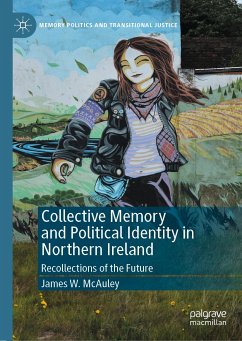This book covers the notion of collective memory - broadly defined as the ways in which differing pasts are created, understood and reproduced - and how this is perpetuated in Northern Ireland by a wide set of social actors, including nations, religious and political groupings, and local communities. Such collective memories are not a preservative for historically accurate recall of bygone events but rather readings of the past subject to contemporary interpretations and political pressure. The adoption of political symbolism remains central to subsequent events. Indeed, in Northern Ireland, both communities hold their conflicting 'memories' dear and, importantly, rival political organizations have invested much in their own reading of the causes of the outbreak and continuation of the conflict. Set alongside constant exposure to other forms of discourse, texts, songs, prose and more visible physical manifestations - such as murals, commemorative gardens, personal tattoos, and even gravestones - there are a multitude of ways of reminding people of particular memories, community histories and interpretations of events, and of providing the background within which attitudes are formed.
Dieser Download kann aus rechtlichen Gründen nur mit Rechnungsadresse in A, B, BG, CY, CZ, D, DK, EW, E, FIN, F, GR, HR, H, IRL, I, LT, L, LR, M, NL, PL, P, R, S, SLO, SK ausgeliefert werden.









